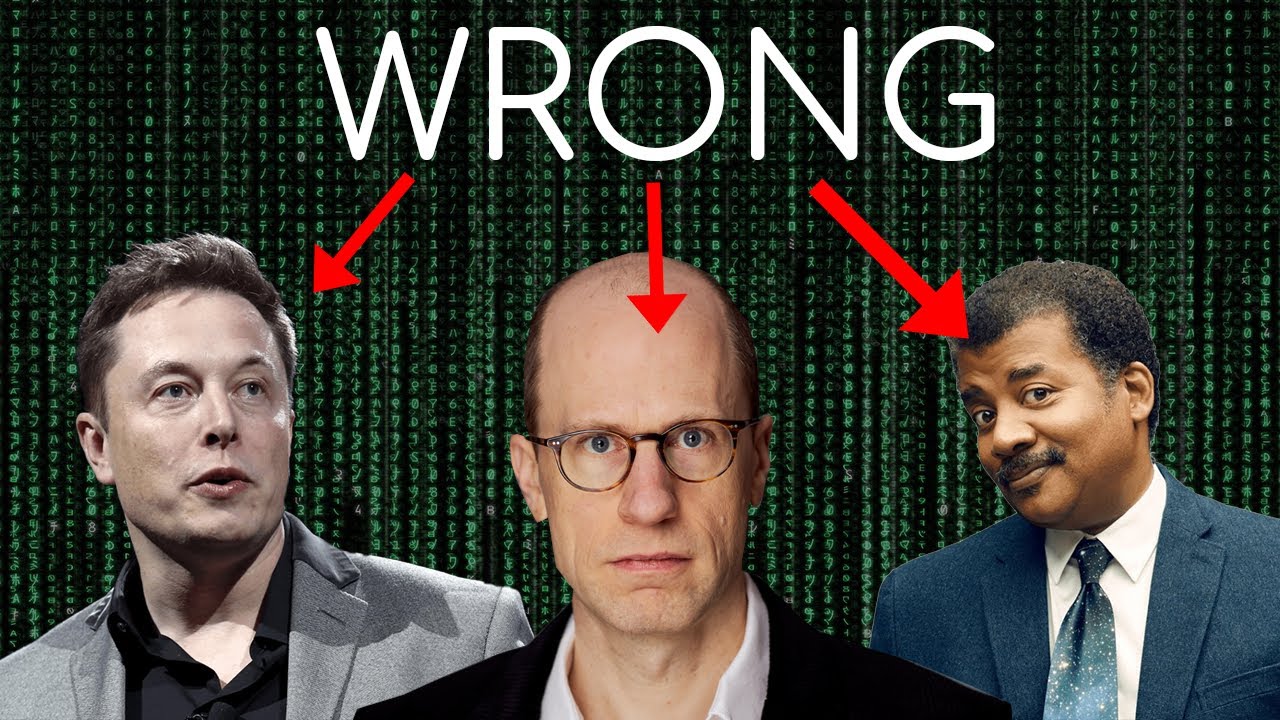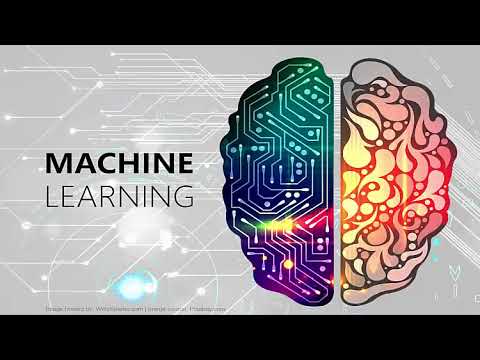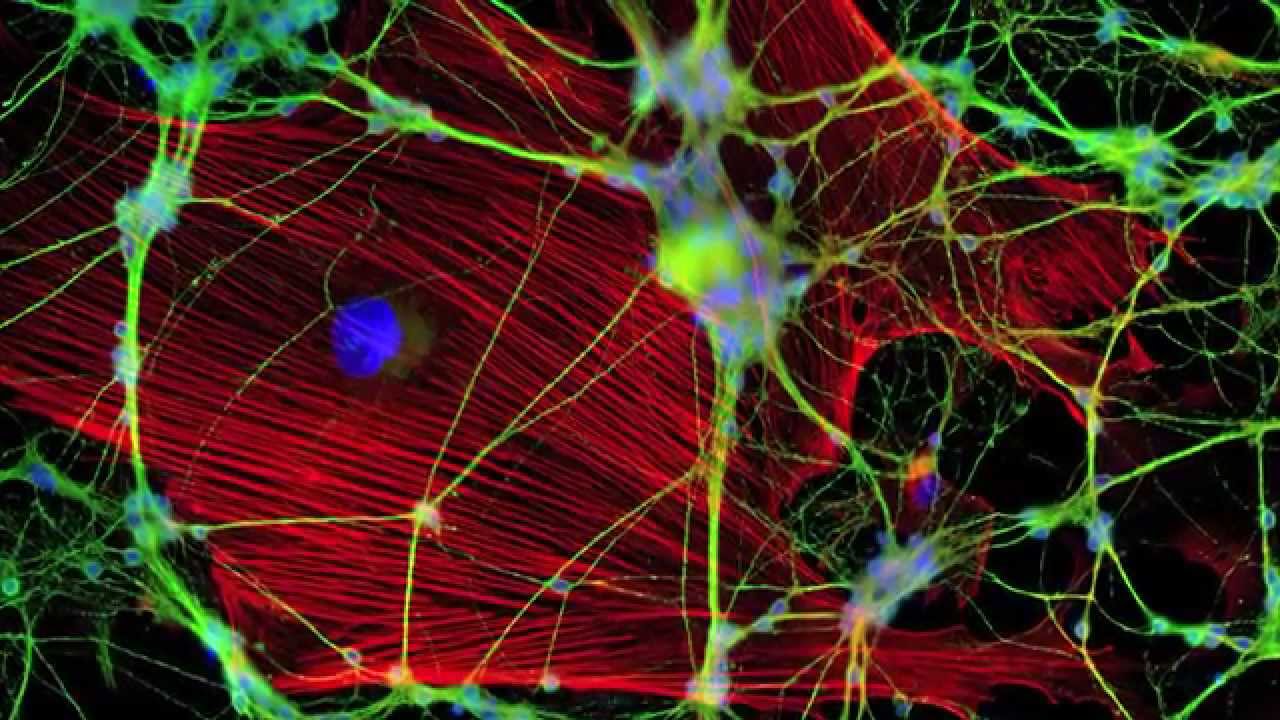Duncan
A philosophical analysis of the simulation hypothesis argument.
References:
Bostram’s essay:
https://www.simulation-argument.com/simulation.pdf
Constraints on the universe as a numerical simulation: https://link.springer.com/article/10.1140/epja/i2014-14148-0
Computational Theory of Mind:
https://en.wikipedia.org/wiki/Computational_theory_of_mind
John Searle’s Chinese Room Argument:
https://en.wikipedia.org/wiki/Chinese_room
Frank Jackson’s Knowledge Argument (Mary’s Room):
https://en.wikipedia.org/wiki/Knowledge_argument
Some points drawn from this fantastic video by Sabine Hossenfelder:
https://www.youtube.com/watch?v=HCSqogSPU_Q
Source




1st. What is a hypothesis!!??
I mean it's as unfalsifiable as cyclical universe and the notion of a creator God. Even if you'd somehow prove we're in a simulation of another, maybe larger world, why couldn't that other world not be a simulation itself? And of course it's the popular metaphysical concept of the technological age we live in although theories about us not being the "real" reality go back to the dawn of time
Love your videos! … Humans have always tried to define themselves as special. It is so hard to accept we are but NPCs. But it doesn't make the world less real, and I hope you'll figure out the Occam's razor against an incomputable qualia. When it suits you. 😁
Also, I agree too many steps are skipped. The arguments have a ton of hidden assumptions. Such as, when civilizations advance, creating simulations become easier and easier. Humans can simulate physics better and better, and we do spend effort on it. The argument is purely based on us, the only known example. But we are the only known example. It is ironic how the "many civilizations" argument takes the opposite stance and ignores the Fermi paradox, ignores our only known example. The "many civilizations" argument mandates more than 1 civilization per universe to sustain a tree of many civilizations. Needs faith in aliens.
Based
Theres probably something much more weird after we die for sure
Do people generally agree that reductionism implies the computational theory of mind?
I am a reductionist: I think the stuff that makes up my brain is fundamentally the same as the stuff that makes up a computer. In principle there is no reason why I cannot use a simulated neuron to replace a biological one, and my experience of life would not be changed since the simulated neurons performs exactly the same function with respect to the rest of my brain!
Carrying the process forward, I could in principle replace more and more neurons with simulated ones and offload my brain in that fashion.
I’m not saying that humanity will ever achieve this, but it is theoretically possible and it seems to argue convincingly for substrate independence. In order to reject this do you not have to reject scientific reductionism?But that has strong support from the vast body of scientific knowledge of physical systems whose behaviors have been understood to emerge from fundamental physics. We keep looking but we never find any dualistic substance which can’t be reduced!
If rejection of substrate independence is based on rejection of reductionism, then it seems substrate independence is on solid ground.
The problem here is that we still have absolutely no idea what consciousness is, so the notion that simulating consciousness is farfetched is itself baseless. The Holographic Principle in particular lends rigorous scientific credence to the perfectly possible, if superficially unpalatable, simulation hypothesis. Always remember to reign in the dogma when we’re in uncharted territories regardless of which way you find yourself leaning at any given moment.
Chinese room thought experiment is not a good objection to computational theory of mind. It assumes that conversation and language in general can be simulated by a simplified scenario of an english man combining one set of inputs with some outputs and thus giving us a false intuition. In reality, having a conversation is much more complicated then that. Same thing goes with Marry's room, we can imagine that we can know all the physical knowledge of colour red without experience, that does not mean we know what it's like knowing all the physical information about colour red, thus giving us a false intuition.
P.S. I'm not a proponent of the simulation hypothesis or fan of elon musk
I don't see why a lot of time, energy and money would be wasted one simulating a world like this. If it was that good, it would be used to predict the future to give returns on the invested time and money.
Yeah, nothing more comforting than the thought of being just simulated experience. The simulation hypothesis is not some faith-based worldview you want to make it out to be because, I don't know, you can't stand Musk? It says: Here's two premises we might want to hold because they are sensible, given a certain theoretical backbone. The conclusion that we live in a simulation then follows logically from these sensible premises. That's the whole catch. It's not science, it's philosophy.
There is also very simple procedural code that can look like mountains and leaves so there is a proponent of our reality already realized in some sense for one of our senses
I think sensors for pressure could be developed into synaptic feedback to simulate pain via nerve endings in a way so it may be possible to simulate a human body via technology entirely since the human body is just a bunch of electrical signals
I think the supposition that our cognition to this reality is the true reality is not based on this argument it's entirely possible that an approach to understanding the universe completely is out of humans grasp but not other conscious beings. This a reality where we only see the world in quantum mechanical terms would have a different approach to computers entirely and this could simulate more than binary, superposition in the machines could allow for subjectivity to machines in a way that we could analyze. Much like how computers that analyze facial expressions now have a way of quantifying pain and pleasure and other things. It is sorta disingenuous to say there is no understanding there. In the Chinese room problem it entirely negates the fact that in a way those rules have a complete understanding of Chinese communication. And the other issue is akin to saying do humans have any truth to be found coming back to objective vs subjective reality.
To the first premise, wouldn't the Dark Forest theory presented in "The Dark Forest" by Cixin Lu possibly help its validity?
This was overall a very weak attack of the simulation hypothesis, in my opinion.
I personally don’t believe human consciousness can be uploaded in the ways ray kurzweil-ites desire, and I don’t think that the simulation hypothesis is in any way an escape of afterlife, I really don’t think most proponents of it do at all.
You make a large argument about anthropocentricity, which I agree with in part, but you also assume we must be so unique as to be the only ones interested in making simulations, even though you just admitted that the vastness of space makes the existence of other life a near certainty despite there being no evidence for it right now. Would the same vastness not be responsible for other simulating species?
Also, who says the computational theory of consciousness is entirely invalid? Do you have another proposal that isn’t somehow religious? What makes you so guarded about the special nature of your subjectivity? What if the interaction of the circuits in your computer is enough to form a cogent reality for a system of simple subjects in a way you can’t comprehend. What if we’re the simple 8-bit simulation of a computer grander and more vast than we could possibly understand?
These are certainly all hypothetical questions but you dismiss this sort of hypothetical thought outright far too easily. Remember that the idea of atoms and bacteria and so many other things were ridiculous propositions at the time that gained steam and found their evidence as they went, and were able to produce predictions. Don’t throw the baby out with the bathwater.
Overall this video just felt too desperate to attack. The simple gotcha counterarguments of someone unfamiliar with a deep and nuanced discourse. In the future you should try to make content that is more informed and constructive. As someone who cares a lot about nuance I just hate to see these complex issues simplified.
It's really odd that people who bring up the idea of uploading their minds to a computer never consider the fact that they're not uploading themselves onto the computer. It's just information. They remain as finite and subject to death as ever before.
It also reminds me of how every time someone "beams" up in Star Trek, they effectively die to themselves and are reborn as a new, replicated version of themselves. It's not the same experiencer .
There were people that took that seriously?
Oh we live in a simulation alright but it's nothing like what you think. Most are simulated to believe they are US Citizens and are completely free. If your someone who believes this and you are struggling with poverty, drug addiction, have no social support from your state, local, Federal Governments you might be living in a matrix that was created to enslave you. Open your eyes, know thyself, you are the Lord of your reality everyone else works for you at your pleasure.
I know there's little chance you'll see this comment, but I have some questions about how you reason against the idea that the Human brain can be digitised.
You seem to have a firm belief that the brain cannot be put into a computer, suggesting that if the brain is just information processing, then that would suggest that Humans are just "NPCs" following basic programming, reacting to their environment, but what evidence is there against this? We do not know what consciousness is, for we know, a computer could be conscious in the same way we are, why do you assume there needs to be some higher component to the Human mind?
The way you present your ideas on how the brain cannot be digitised seem to suggest that you believe that the brain to have some unknown component to it that "creates" consciousness that can't be duplicated, which suggests a faith in something that science hasn't proved. This I feel is a little ironic since this video seems "debunk" the simulation hypothesis as a faith spawned from the fear of death, but a belief that the brain can't be digitised seems (in your case) to be a faith spawned from the fear that life is predetermined, and that Humans are not truly in control of their own actions.
Respect your position and the courage to upload the video and allow people to comment on it. In my opinion trying to prove this theory wrong is like proving god does not exist, practically impossible to do. We can perfectly be living in a simulation even after the arguments you mentioned, and maybe, our created simulations may never be as good as our reality but that does not prove that are parent simulation does not exist. In case you have not had experiences creating simulations like celullar automata or the latest AI advances, I invite you to take a look we might be close to another technolgical breakthrough for humanity.
I strongly disagree with your sentiment that this idea is not based on science, ridiculous or based on faith. Most scientists hold the belief that brains are purely material, deterministic and computational. The one who holds an unconventional point of view is you (and actually me too). This is because it is very likely that the brain does not make use of quantum effects, as many scientists have pointed out the brain is too hot and in a very unoptimal position to have those. If the brain behaves purely acording to classical physics, it certainly can be simulated with enough computing power.
Leaving that aside, I actually agree with you. Reducing consciousness to a computation just doesn’t seem possible nor make sense. But what I wanted to point out is that this is a phylosophical problem with a long history and it is not trivial at all. What is being discussed is essentially materialism vs dualism, and your dualist position has a lot of problems too. For example, isn’t it anthropocentric that we humans have this qualia that cannot be reduced to classical physics? Doesn’t this put conscious beings in a very special position in the universe? Plus, what is this qualia anyway? It is a very problematic and almost magical concept because neither clasical physics nor quantum mechanics seems to be able to explain it at all (the existance of randomness in the laws of quantum mechanics doesn’t seem to be enough to explain our conscious experience or intentionality).
My personal opinion is that I don’t know.
Great video. A quibble, qualia is pronounced kwal – ea, not quail – ea.
We aren't in a simulation.
We are in a contingent (as opposed to necessary) universe.
Newton's "real/necessary" universe is gobbledygook.
The argument can be formed in a better way. I think in order to believe in Brain Computational theory, you must first argue for Determinism, which can be done in the following way.
P1: If the past determines the future, then your actions are predetermined.
P2: The past does determine the future.
C: Therefore your actions are predetermined.
Its funny because I think your rebuttal is faith based since it assumes that conscious creatures do have a will.
The second argument is like radical skepticism:
P1: we cannot not trust things which can deceive us
P2: Sensory perception can deceive us (example dreams and hallucinations
C: So we cannot trust sensory perception, I.e the world may be illusory
Phillip k Dick also believed in the hypothesis
Simulation theory is bullshit yeah, but mind upload is nonscense? Bruv its no one's fault you lack vision
dude i loved the jointt talk 😂
If something can't be measured, then it can't be disproved. So it remains philosophy. It might still be true. But it isn't even false. If it yet gives one meaning and purpose, then that might be what many need. Santa Claus is coming to town.
2:28
Dark forest theory?
Space is fake. Earth is flat. This is hell. But that’s ok. 👍🏻
Are the politicians stupidly simulated?
Well, we know one civilization exists, and we know that they made sims…. So what if this is just complicated sims game, maaaaann?
Very interesting! Appreciate!
The one thing that keeps getting me is the theory that if your staring up at the sky and not paying attention to where your walking then it's a probability that you can walk off a cliff. Basically, it's awesome to imagine and wonder, but when it really comes down to it the only truth is what's in front of us. Don't ya think?🤔
It doesn’t seem like you took this idea too seriously when looking into it.
You say that premise 1 requires us to assume aliens. That’s not the case. Even if our civilization is the only one, it seems likely that at some point in the future, somebody somewhere will create an ancestor simulation. In the full scope of time in the future, people will probably create millions and millions of them, but as long as people in the future create at least two of them, that means our odds of being in base reality are less than even.
Then you say we don’t know if other civilizations would be interested in creating simulations. Assuming NONE of them would be interested seems like quite the stretch. Even if only a small fraction of them care to do so and start pumping out simulations, the idea still holds.
And then you argue that substrate independence is not only doubtful, but so unlikely as to be your key reason that the simulation hypothesis is ridiculous. Considering you aren’t religious, this seems insane to me. Usually only religious mind/body dualists deny substrate independence so fervently.
You claim there is no evidence for it and that it’s faith-based, but that’s simply untrue. The evidence is that upon very rigorous inspection, there doesn’t appear to be anything supernatural about the brain. It’s made of the same matter obeying the same laws of physics as everything else, and there doesn’t seem to be anything special about meat that we couldn’t replicate with other materials. We know a lot about how neurons work with axons and action potentials etc.
Is it possible we are missing something fundamental and it turns out that there is something super special about meat that makes it the only proper substrate for minds? Sure, but all of the evidence so far points in the opposite direction. So, to claim that substrate independence is just a matter of faith akin to religion is ridiculous.
Row, row, row your boat
Gently down the stream
Merrily merrily, merrily, merrily
Life is but a dream
I appreciate how you explain this hot-button topic in an unpretentious way that’s easy to understand. Subscribed.
I have smth to say for CTM, tho. I’ve always found searle’s argument that a computer can’t “understand” anything a little strange, though I couldn’t explain why. But I think I’ve got it. Basically, he’s just using the word “know” very loosely. If you had billions of tiny men, each performing a sub-computation which altogether performs the very complex processes of decoding what Chinese words mean and formulating an answer in Chinese, all while obeying grammatical syntax and cultural mores, you could say that the whole system “knows” how to speak Chinese, even if the billions tiny men (a shorthand for neurons) individually do not know how to speak Chinese. Interestingly I’m not the only one who thought of this. Steven pinker also thinks so, as he explains in his book “How the mind works.” As for qualia, I suppose it’s true that you can’t “prove” that it’s “merely” information processing using experiments and evidence, but honestly it doesn’t contradict or disprove it. Plus, is there a better theory out there? CTM meshes well with what we know that everything can be obeys the physical laws of the universe.
Btw, I agree with u that we’re probably not living in a simulation, and that it’s just another trendy pop theory. But my reasons are different. It’s because there’s just no evidence for it lol. I suppose it could be true, just like how it could be true that ur memories and habits were are illusory and the universe actually began ten seconds ago. Plus, as you correctly mentioned, why would aliens bother with creating simulations? They might be interested in other things.
The point to the simulation is simple. To give humans time to evolve to the point where we don't try to kill them (the operators). Imagine traveling the universe in an attempt to discover new life. Imagine that humanity at it's current state were the civilization you came across. Think about how we portray aliens in media as potentially hostile and how violent we are. You would want to "Domesticate" the humans first. Since your race is advanced you know how valuable life is. You would want the most humane way to teach that lesson to the humans. A simulation would be the best most humane way to train people NOT to be violent beings that devalue life. If humans successfully learn the lesson then they earn a real body, if you don't learn then you get reincarnated infinitely until you do learn, because an intelligent race will know that eventually humans will learn. It's also the most humane because you are saving the race from self annihilation AND if they don't want to be saved… well then, that's fine don't change and just go on continually experiencing death if you want.
Stop lying! We all live in osrs 😂
Would your critique of the second point technically also incinuate the imposibily of accuratly mapping the brain or understanding the funtions which allow for cauntiousness? If your thought experiments prove that an indivuals perseption of the world is, in itself, entirely relative to each indivual, then how would anyone ever be able to accurately examine it and understand it. It would be impossible to manufactor a machine that can record and reproduce ones worldly perception if the people making that machine may not even have same worldly perseption.
What do you think of the Qualia Reasearch Institute and Andrez Gomez Emilsson?